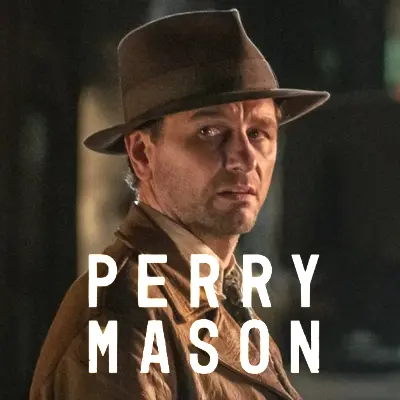Perry Mason's portrayal of 1930s corrupt LAPD officers is rooted in a real-life federal investigation
-

"What Perry Mason portrays in the most dismal light... is law enforcement and the criminal-justice system," says Adam Sewer of the HBO series. "The cops in Perry Mason are corrupt. They are racist. They take bribes, torture suspects, intentionally arrest the wrong people, falsify evidence, and are generally indifferent to solving crimes as long as they find someone to pin them on. L.A. District Attorney Maynard Barnes, played by Stephen Root, withholds evidence, employs coercion, and attempts to prosecute cases in the media by appealing to the public’s prejudices. He also betrays at least some awareness of police using extralegal methods. 'If you walk out of that door and you think for one second that you are entering into a nation of laws, you are a complete f*cking idiot,' Mason declares in the fifth episode." Sewer adds: "Many gritty reboots are sold as faithful returns to the original source material. Christopher Nolan’s Batman Begins, which, as Kwame Opam points out, was arguably the catalyst for the widespread adoption of the gritty reboot, was marketed as a return to the Dark Knight’s roots. Perry Mason’s uncharacteristic bleakness may make viewers feel like this is another shortsighted attempt to draw in viewers with the misguided belief that darkness and sophistication are the same thing. Perry Mason is cleverer than that. The show has its flaws, and indulges some obvious fictional flourishes, but its portrayal of the authorities is rooted in the real history of American law enforcement. But you don’t have to take my word for it, because almost a century ago the federal government issued a report painting a damning portrait of law enforcement in California and the country at large...President Herbert Hoover convened the Wickersham Commission in 1929 to study the effects of alcohol prohibition on law enforcement, about three years before Perry Mason takes place. One of the volumes of the commission’s report, 'Lawlessness in Law Enforcement,' warned that 'there is no more sinister sophism than that the end justifies the employment of illegal means to bring offenders to justice.' The report, however, found copious evidence of such abuses, in particular the use of coercion to force suspects to confess, referred to colloquially as 'the third degree.' The authors of the report concluded that 'the third degree—that is the use of physical brutality, or other forms of cruelty, to obtain involuntary confessions or admissions—is widespread.'"
TOPICS: Perry Mason (2020), HBO
More Perry Mason on Primetimer:
